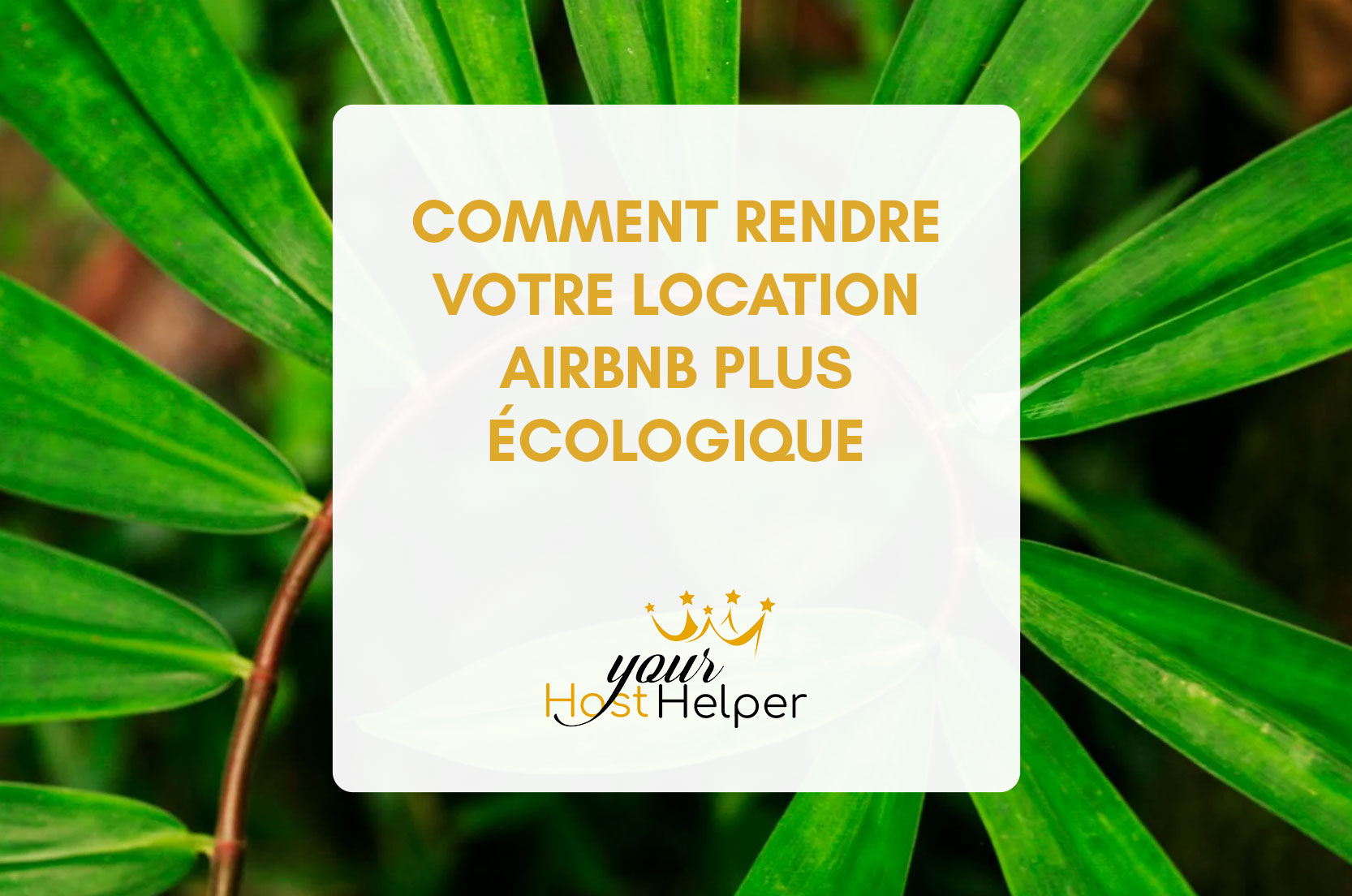When you own an Airbnb rental, it's important to consider travelers' current environmental concerns and make your home more eco-friendly. Not only will this contribute to environmental protection, but it will also attract tenants for whom current environmental issues are a real concern. Today we offer you concrete advice to make your vacation rental more sustainable and environmentally friendly. Discover how to make ecological choices without compromising the comfort or attractiveness of your accommodation and on the contrary, to create a real differentiating argument for your Airbnb rental thanks to the valuable advice of our concierge agency in Villers-sur-Mer.
1. Offer recycling options for tenants
Waste management is an essential aspect of eco-responsibility. In France, local regulations regarding waste sorting are established by the Environmental Code. You can make sorting waste easier by providing tenants with recycling containers in your vacation accommodation. Be sure to inform your tenants about the specific color codes for each type of waste, depending on local conditions. Do not skip this step: the color codes of waste containers vary from one city to another. Furthermore, collection methods, depending on the types of waste, also vary greatly from one sector to another.
2. Opt for energy-efficient heating and cooling
Energy management is another important aspect of eco-responsibility. You can make your vacation rental more eco-friendly by installing energy-efficient equipment, such as smart thermostats. These devices allow you to regulate the temperature optimally, thereby reducing energy consumption when the home is unoccupied. Plus, you can program the thermostat to accommodate your tenants' schedules, so the air conditioning or heating isn't running unnecessarily while they're away.
There are different models of smart thermostats popular in France. You can opt for a model equipped with machine learning functionality, a touch screen, a mobile application and/or one that uses geolocation to detect the presence of occupants. Although purchasing and installing a smart thermostat has an initial cost, it can be a good investment in the long run by helping you save on your heating and cooling costs.
3. Encourage the use of local and organic products
Offering local and organic produce in your vacation rental can offer many benefits. Organic produce is grown without pesticides or chemical fertilizers, reducing the environmental impact of food production. By purchasing local produce, you also support local farmers and reduce greenhouse gas emissions associated with transporting food over long distances.
You can highlight these high-quality products by providing a map with a description of local producers and how the products are made. By partnering with local businesses to offer breakfasts made with local ingredients or local cosmetics that guests can take home, you show your commitment to the environment and local economic activity. This approach can build renters' trust in the host by providing a more personalized experience and showing that efforts have been made to provide a premium experience.
4. Reduce water consumption
Reducing water consumption is another important aspect of eco-responsibility. You can take simple steps to reduce the amount of water used without compromising the comfort of your guests. For example, you can install low-flow faucets and showers that reduce water consumption while maintaining adequate pressure. You can also encourage your tenants to adopt water-saving practices, like taking showers instead of baths.
Rainwater harvesting is another ecological solution. You can install a rainwater harvesting system that collects water from the gutters and uses it to water the garden or flush the toilet. This makes it possible to reduce the consumption of drinking water when it does not require such high quality and to preserve natural resources. Do not go too quickly and check with the administrations to find out the local rules for the collection, use and treatment of rainwater.
5. Opt for ecological and sustainable products
When choosing products for your vacation rental, favor ecological and sustainable options. Opt for organic toiletries, such as shampoos, soaps and other products that are free of harmful chemicals and come in recyclable or refillable packaging. In addition, use ecological cleaning products, which are less aggressive for the environment and the health of your guests.
You can also choose sustainable furniture and decor, such as second-hand furniture or pieces made from recycled materials. Not only will this help reduce your home's carbon footprint, but it will also add a unique touch to your decor.
6. Raise your tenants’ awareness of eco-responsibility
Education and awareness are key to encouraging environmentally friendly behavior among your tenants. Leave a note or guide explaining the eco-friendly initiatives you have implemented in your home. Encourage your tenants to adopt eco-responsible practices during their stay, such as rational use of water, recycling waste and saving energy. You can also provide information about public transportation and green transportation options available near your accommodation.
By making your tenants aware of eco-responsibility, you help create a community of environmentally conscious travelers. Your efforts to make your Airbnb rental more eco-friendly and environmentally friendly will be appreciated by your tenants and will help you attract responsible customers.
You can download the YourHostHelper guide created for this purpose.
Making your Airbnb rental more eco-friendly and environmentally friendly is a responsible choice that contributes to the preservation of our planet. By following these affordable tips, you can offer your tenants a unique experience while reducing your ecological footprint. Opt for sustainable practices such as recycling waste, using energy-efficient equipment, using local and organic products, reducing water consumption and using eco-friendly and sustainable products. Raise your tenants' awareness of eco-responsibility and encourage them to adopt an environmentally friendly lifestyle during their stay. Together we can contribute to a more sustainable future.





